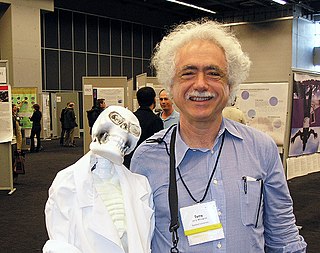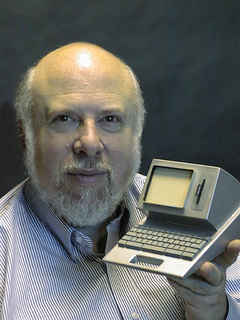A Quote by Howard Rheingold
In Japan, their written language doesn't translate to keyboards well. So they have problem communicating with computers, so they really feel that what's missing from telephones and computer interfaces is this ability to move around in three-space.
Related Quotes
Every big company has some little guy who is an enthusiast off in the corner working on technology. In Japan, it is integrated into their high-level strategy. They see it as a communication medium, because for them, just the words? - ?and this is the problem that they have with Americans? - ?just the words they say to you is not the complete message. Their facial expressions, their body language, there is a lot of context. Also, their written language doesn't translate to keyboards well.
A reason to have computers understand natural language is that it's an extremely effective way of communicating. What I came to realize is that the success of the communication depends on the real intelligence on the part of the listener, and that there are many other ways of communicating with a computer that can be more effective, given that it doesn't have the intelligence.
What distinguishes a human being from a computer? The ability to add up numbers? The ability to understand language? The ability to be logical? It is, of course, none of the above. It is the ability to play. Computers cannot have fun. They cannot fantasize. They cannot dream, they cannot experience emotion or summon intuition. These rare, precious qualities come naturally to every child on this earth yet they tend to be seen, by well meaning adults, as faults, foibles and failings. In pushing tiny toddlers to 'perform', we rob them of the ability to imagine.
I am confident that we can do better than GUIs because the basic problem with them (and with the Linux and Unix interfaces) is that they ask a human being to do things that we know experimentally humans cannot do well. The question I asked myself is, given everything we know about how the human mind works, could we design a computer and computer software so that we can work with the least confusion and greatest efficiency?
An American customer can book in English all over the world, but also, somebody from Japan or China can book in their own language everywhere. We translate all of our content into these languages, and that's quite unique. We service our direct customers - the innkeepers - as well in their own language.
I was really looking at computers as a way to understand the mind. But at M.I.T., my mind was blown by having a whole computer to yourself as long as you liked.I felt a surge of intellectual power through access to this computer, and I started thinking about what this could mean for kids and the way they learn. That's when we developed the computer programming language for kids, Logo.
People have been trying to do kind of natural language processing with computers for decades and there has only been sort of slow progress in that in general. It turned out the problem we had to solve is sort of the reverse of the problem people usually have to solve. People usually have to solve the problem of you're given you know thousands, millions of pages of text, go have the computer understand this.


































